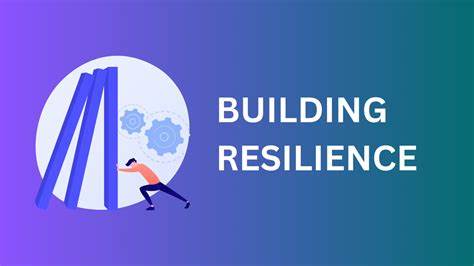
Building Resilience: Overcoming Life’s Challenges
Introduction
Resilience is the ability to recover from adversity and adapt to difficult situations. Developing resilience is crucial for effectively navigating life's challenges and emerging stronger.
Understanding Resilience
What it is and Why it Matters
Resilience involves mental toughness, emotional strength, and the capacity to recover from setbacks. It’s essential for maintaining mental health and well-being, allowing individuals to manage stress, overcome obstacles, and maintain a positive outlook.
Techniques to Build Resilience
Cognitive Restructuring
Cognitive restructuring involves changing negative thought patterns into positive ones. It helps in altering perceptions of adversity, making challenges seem more manageable.
- Technique: Practice recognizing negative thoughts and reframing them in a positive light. For instance, instead of thinking, "I can't handle this," try, "This is tough, but I can find a way through it."
Developing a Support Network
A strong support network provides emotional and practical support during tough times. Building relationships with family, friends, and community members can offer comfort and guidance.
- Technique: Engage in social activities, join support groups, and maintain regular communication with loved ones. Share your experiences and listen to others.
Self-Care Practices
Taking care of your physical and mental health is foundational to building resilience. Self-care practices include regular exercise, healthy eating, adequate sleep, and mindfulness activities.
- Technique: Create a daily routine that includes physical activity, nutritious meals, and time for relaxation. Incorporate mindfulness practices like meditation or deep breathing exercises to reduce stress and enhance emotional well-being.
Real-Life Examples
Story 1: Maya’s Academic Journey
Maya faced significant challenges in her academic journey, including financial difficulties and personal setbacks. By developing a strong support network and practicing self-care, she managed to graduate with honors. Her resilience allowed her to overcome obstacles and achieve her goals.
Story 2: John’s Career Transition
John experienced a major career setback when he lost his job unexpectedly. Through cognitive restructuring and the support of his family, he transitioned into a new career that aligned better with his passions. His ability to adapt and stay positive helped him find success and fulfillment in a new field.
Conclusion
Building resilience is a powerful way to cope with life’s difficulties and emerge stronger. By understanding what resilience is, practicing cognitive restructuring, developing a support network, and prioritizing self-care, individuals can navigate challenges more effectively. Embrace resilience to enhance your ability to recover from adversity and achieve personal growth and success.
